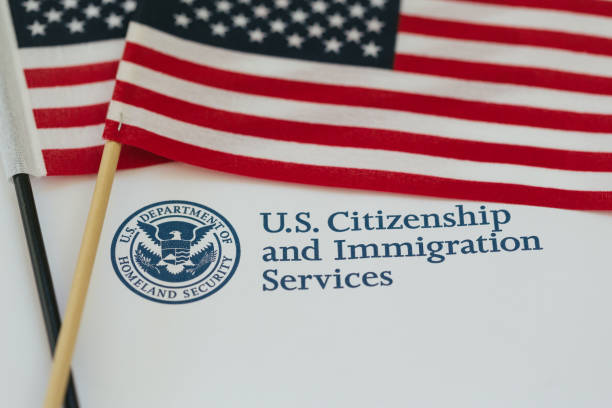
Interest in dual citizenship has soared in a post-Brexit world. However, the trend of applying for citizenship through familial connections, such as having a parent or grandparent from another country, is far from new, or exclusive to Britain and Ireland. The current statistics indicate that the volume of British nationals applying for second Irish passports has risen tenfold in the last decade, to 160,000 dual citizens. The latest data also shows that 63.1% of Irish citizens hold a US and UK passport. Similarly, becoming a United States citizen protects individuals from deportation, so families can stay together, and communities are more stable. As a lawful permanent resident, certain criminal convictions could make you deportable, and even some non-criminal activities can put you at risk for permanent consequences such as deportation.
The European Union facilitates Irish citizenship by unlocking many doors for travel, work, and residence, particularly if a person is currently a citizen of a non-EU country, like the US. Irish dual citizenship gives individuals the right to travel, work, and reside in every one of the EU’s 27 member states which includes Austria, Belgium, Bulgaria, Croatia, Cyprus, Czech Republic, Denmark, Estonia, Finland, France, Germany, Greece, Hungary, Ireland, Italy, Latvia, Lithuania, Luxembourg, Malta, the Netherlands, Poland, Portugal, Romania, Spain, Slovakia, Slovenia, and Sweden. If individuals want to live a life with European-wide openness, then applying for an Irish dual citizenship is a great way to go. This will no longer need a visa to pass into EU member countries such as spending a few years in Italy or starting work for a Swedish company, and having a quick getaway in the French countryside. However, Irish citizenship makes all of that easy and uncomplicated.
That brings individuals to the next significant benefit of dual citizenship in Ireland, which will be highly sought after, different employment opportunities. That is because many international companies with operations in multiple countries value dual citizens. These team members have a much greater range of places where individuals can easily travel to and earn money by eliminating the headache of work and travel visas. With dual citizenship in the US and Ireland, an individual effectively opens up the doors to work across the EU as well. If a person owns a business or would like to start one, dual citizenship again makes things easier for them to enjoy the stability and opportunities of a unified European currency and a simplified system for trading across EU borders. Non-EU citizens also face restrictions on buying European securities like unit trusts, real estate, Eurobonds, and investment funds. However, dual citizenship makes these restrictions disappear.
Higher education also plays a substantial role in different people’s lives. In the US, tuition fees are planetary, and their increase continues to outpace the rest of the economy. For many students, this means massive student loans that await them after graduation. But in the EU, the approach to higher education is much different in comparison to other countries. In Ireland, an individual can find high-level, English-speaking universities for a very low cost. This means dual citizens can afford education without racking up difficult debt. Irish dual citizenship also opens the door for EU tuition rates in all member countries.
Once an individual becomes a dual Irish citizen, they can transfer these privileges to their children and all future generations at birth, which makes it effortless to keep the benefits in the family. Most people consider this a significant part of citizenship and can also set up their children and grandchildren for a lifetime of success, particularly considering the affordable education, access to healthcare, and professional opportunities.
Cons of holding both Irish and US citizenship may include the complex tax obligations, limitations on sensitive government employment and potential confusion with legal or financial matters. Directing the requirements of two separate legal systems, particularly when it comes to residing abroad may create significant burdens such as
The most prominent disadvantage of dual US and Irish citizenship is the US citizenship-based taxation, which is a key point to understand, as the United States is one of only two countries in the world that taxes its citizens' income across the globe instead of where they are living.
US citizens must file a US tax return annually for reporting their global income, even if they live and work exclusively in Ireland and pay Irish taxes. Although the US-Ireland tax treaty and mechanisms like the foreign tax credit or foreign earned income exclusion can prevent double taxation but are also difficult to navigate. This foreign treaty rule can only be understood by hiring tax professionals who are experts in both US and Irish tax law, which adds more cost to the individuals.
Dual citizens with foreign bank accounts may exceed particular thresholds to file annual foreign bank account reports and comply with the Foreign Account Tax Compliance Act. Moreover, holding dual nationality can prevent a person from obtaining a high-level security clearance in the US to make them intelligible for sensitive government or military positions.
Some US federal and military jobs require a full security clearance that may later be denied to dual nationals. Dual citizenship may also create issues for individuals who consider a career in federal intelligence or certain areas of diplomacy, as it may limit their career progression. While less common potential issues may arise from being subject to two different legal frameworks. However, dual citizenship can complicate identity, though this is a less concrete concern. A
dual national may face questions about where they really belong from others who do not understand dual nationality. While this is usually a minor social issue, it reflects the more personal challenges of navigating two cultures and identities simultaneously.

This post has been authored and published by one of our premium contributors, who are experts in their fields. They bring high-quality, well-researched content that adds significant value to our platform.


